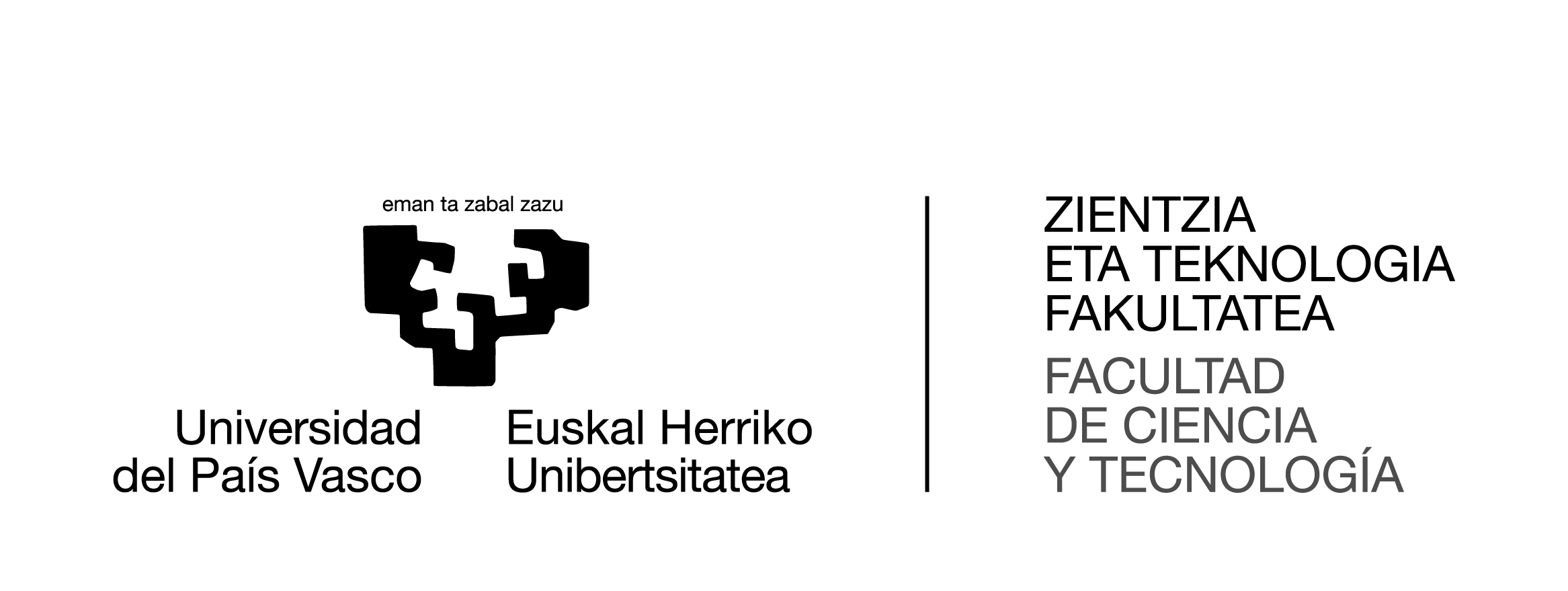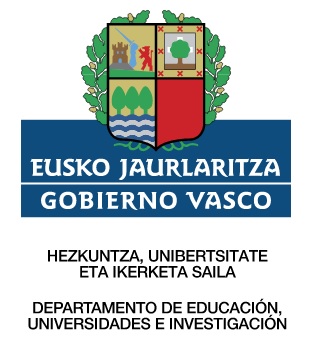Lia Bronsard
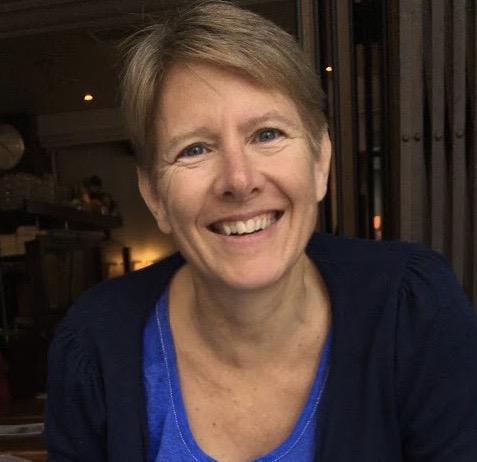
Lia Bronsard is originally from Québec. She did her undergraduate studies at the Université de Montréal, graduating in 1983, and earned her PhD in 1988 from New York University under the supervision of Robert V. Kohn. After short-term positions at Brown University, the Institute for Advanced Study, and Carnegie Mellon University, she moved to McMaster in 1992. She was president of the Canadian Mathematical Society for 2014–2016.
Lia Bronsard was a plenary speaker at the Annual SIAM meeting in Boston in 2016, at the Mathematical Congress of the Americas in Montreal in 2017, at the CMS Summer meeting in Charlottetown in 2018, at the 15th International Conference FBP 21 on Free Boundary Problems: Theory and Applications in 2021 and at the 2024 SIAM Material Science meeting in Pittsburgh. She is on the editorial board of Nonlinear Analysis, CJM and CBM, Mathematics in Science and Industry, FACETS and the Canadian Applied Math Quaterly.
Her research has concentrated around singularly perturbed variational problems, including interfaces in reaction–diffusion systems, grain boundaries, superconducting vortices, and liquid crystal defects. Bronsard was the 2010 winner of the Krieger–Nelson Prize. In 2018 the Canadian Mathematical Society listed her in their inaugural class of fellows.
Title and abstract of the Talk: Boundary Defects in Liquid Crystals
Mária Lukáčová
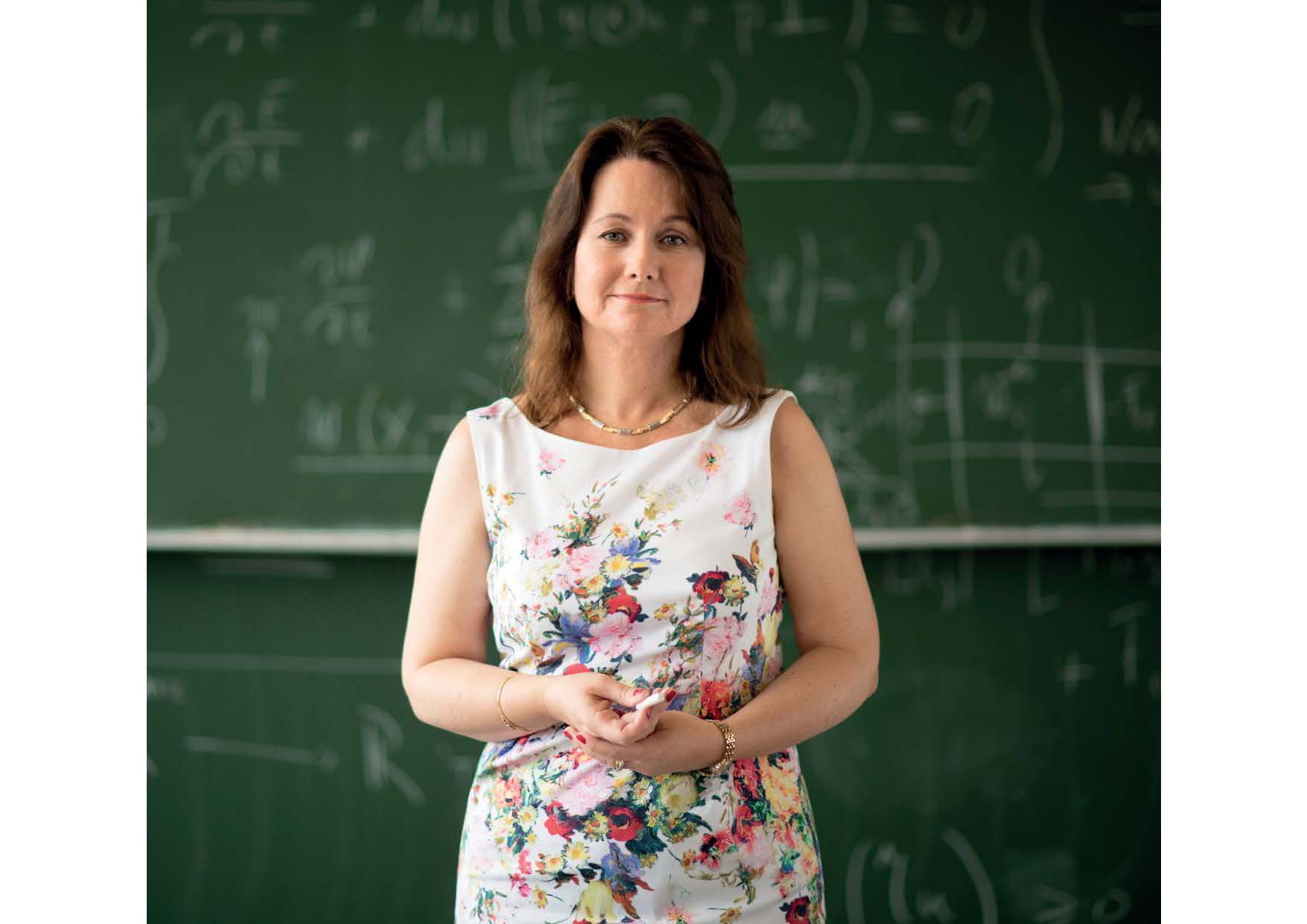
Mária Lukáčová is Professor of Applied Mathematics at the Johannes Gutenberg-University Mainz. She is a vice-spokesperson of the Research Center Multiscale Simulation Methods for Soft Matter Systems and of the Mainz Institute for Multiscale Modelling.
Lukáčová graduated in 1994 from Charles University of Prague. She spent a postdoc at the University of Magdeburg and habilitated in 1998 at the University of Technology in Brno, Czech Republic. From 2002 to 2009 she was a professor at the Hamburg University of Technology and moved to Mainz in 2010. Her research interests are in numerics and analysis of partial differential equations. She made important contributions to the development and convergence analysis of structure-preserving schemes for hyperbolic conservation laws and hybrid multiscale methods for complex fluids.
She received various awards such as the Babuška Prize in 1995, the Prize of the Czech Learned Society in 2002, Bronze Medal of the University of Košice in 2013, or the Gutenberg Research College Fellowship in 2020.
Title and abstract of the Talk: On compressible fluid flows driven by random data
Esmeralda Mainar Maza
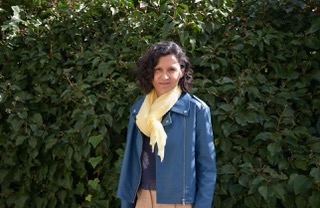
Born in Zaragoza. Bachelor of Science, specialty in Applied Mathematics at the University of Zaragoza, graduating in 1995. PhD in Mathematical Sciences in 1999. Doctoral thesis: “Algorithms for the geometric design of curves in spaces with totally positive bases” under the supervision of Juan Manuel Peña.
Full professor position at the University of Cantabria since 2003 and at the University of Zaragoza since 2011. Joined the body of University Professors in 2024.
Vice Dean for Academic Affairs (until 2023), now Vice Dean of Quality and Innovation of the School of Engineering and Architecture of the University of Zaragoza.
-67 publications: 50 articles in first-level JCR IF journals, 17 non-indexed journals.
-Participation in 20 research projects: 4 European calls, 11 National calls, 6 Regional calls.
-32 communications/lectures in international conferences
-Supervisor of the doctoral thesis: Algorithms for curve design and accurate computations with totally positive matrices, distinguished with an extraordinary doctorate in science award from the University of Zaragoza.
Research interest areas: Computer-Aided Geometric Design, normalized and totally positive bases, evaluation and subdivision algorithms. Error analysis. High relative accuracy, Bidiagonal factorizations of totally positive matrices.
Title and abstract of the Talk: High relative accuracy computations through Newton polynomial bases
Ana María Mancho
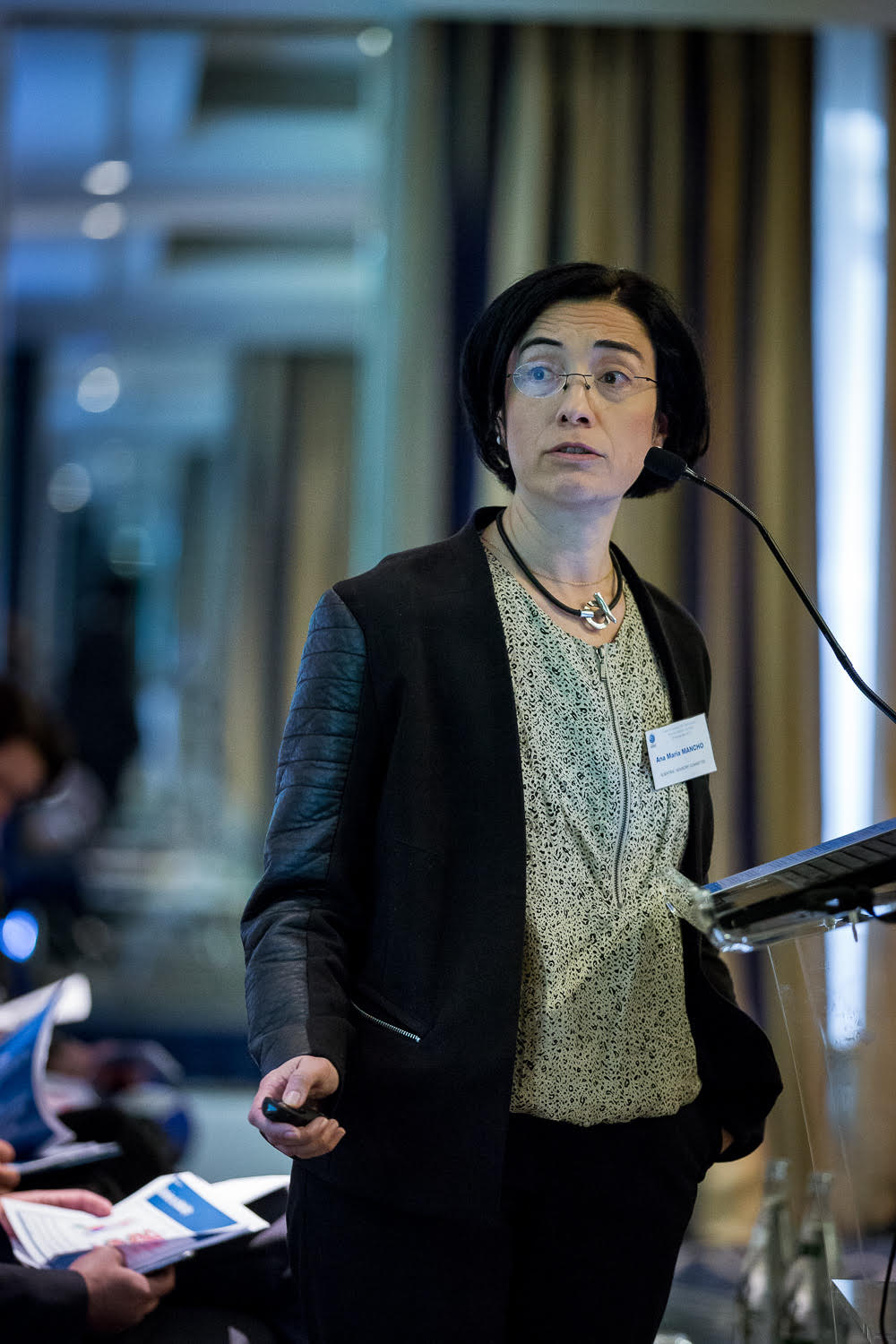
Ana Maria Mancho is a CSIC Principal Investigator at the Instituto de Ciencias Matemáticas, where she leads the Geophysical Fluid Dynamics group, which has a multidisciplinary focus on Applied Mathematics, Ocean, and Atmospheric Sciences. She has developed pioneering dynamical systems tools for describing transport in realistic geophysical datasets. These findings have led to a series of seminal works that form the basis of the method of Lagrangian Descriptors. This innovative tool has been successfully used for describing transport in oceanic flows, including applications ranging from managing oil spill accidents to providing real-time support for guiding gliders in transoceanic missions.
She has led 23 research projects funded by both national and international organizations, including the Office of Naval Research (ONR), the European Commission, the Ministry of Science and Innovation, among others. These projects collectively amount to funding exceeding 3 million euros, with her being responsible for one-third of them. Her research through these projects has matured to the exploitation of the results in a spin-off company, Digital Earth Solutions, of which she is a co-founder. This entrepreneurial idea has received awards as winner or finalist in numerous contests: Actua UPM, CSIC-EBTON, SECOT Excelencia-REPSOL, Expansion, Copernicus Prize, MIT Enterprise Forum Greece Startup Competition, Innovation Radar Prize, Reconocimientos go!ODS, etc.
She has supervised 7 postdoctoral researchers, 8 doctoral students, 2 master's students and over 18 student interns through international and national programs. She serves as Executive Editor of the EGU journal “Nonlinear Processes in Geophysics” and is a member of the EGU Publications Committee. She has been member of the Scientific Advisory Committee of Science Europe (2016-2018), the Science Europe PHYCHEMA Committee (2015-2016), the Advisory Board of the SIAM Activity Group on Dynamical Systems (2022-2023).
Title and abstract of the Talk: A geometric approach to characterizing Lagrangian ocean transport and exploring its environmental applications
David Pardo Zubiaur

David Pardo is a Research Professor at Ikerbasque, the University of the Basque Country UPV/EHU, and the Basque Center for Applied Mathematics (BCAM). He obtained a Ph.D. in Computational and Applied Mathematics in 2004 from the University of Texas at Austin, at the OICES Institute.
His research interests include: computational electromagnetics, applied numerical analysis, geophysical applications, adaptive finite-element and discontinuous Petrov-Galerkin methods, deep learning algorithms, Physics Informed Neural Networks, and solving forward and inverse problems governed by PDEs. He has made critical contributions in the areas of goal-oriented adaptivity and hp-refinements in finite element methods, geophysical applications, and the development of novel physics-informed neural networks for solving PDEs and inverse problems.
He currently coordinates the MATHMODE group at UPV/EHU (www.mathmode.science) and the MATHDES group at BCAM (https://www.bcamath.org/en/research/areas/cm/mathdes). During the last ten years, he has obtained six European projects as PI (including a Doctoral Network (www.in-deep.science) and two Staff Exchange projects), six spanish national projects as PI, and multiple regional projects. He has also signed contracts with 10+ companies, including GKN (2020-2025), REPSOL (Repsol Inspire, 2017-2018), The University of Texas at Austin (2015-2019), and Halliburton (2014-2015).
He has published 140+ JCR articles, he has supervised 17 postdoctoral fellows, and graduated 11 Ph.D. students.
He is a reviewer for 35+ journals, 8+ International Agencies, and an organizer of 30+ mini-symposia. Treasurer of Math-in (2019-2023), Treasurer of Spanish Technological Platform PET-MSO-ED (2021-2023), member of ECCOMAS Managing Board (2021-2024), member of SEMA and SEMNI.
Title and abstract of the Talk: Variational PINNs for solving parametric PDEs
Malgorzata Peszynska
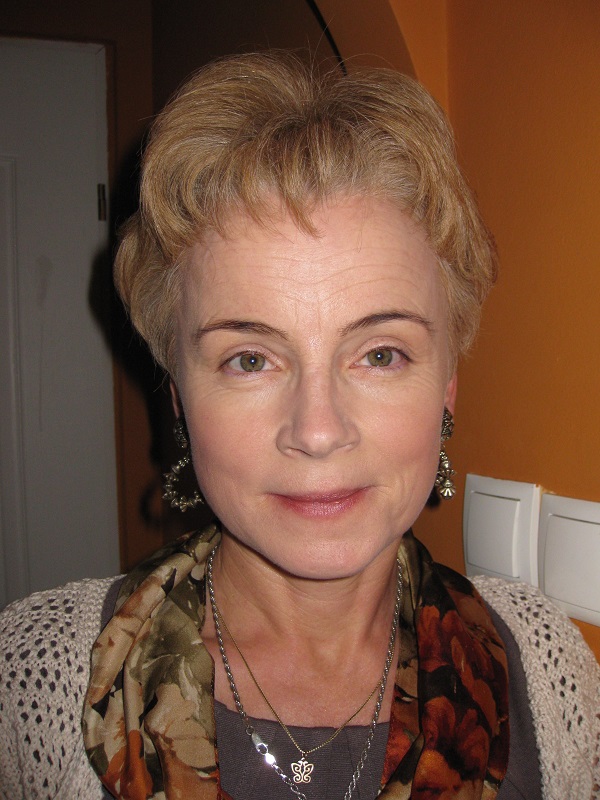
Malgorzata Peszynska received PhD in 1992 from University of Augsburg, Germany, and held academic positions at Polish Academy of Sciences, Warsaw University of Technology, Purdue University, The University of Texas at Austin, and at the US National Science Foundation. Since 2003 she has worked at Oregon State University where she is now the University Distinguished Professor of Mathematics. She received 2009-10 Fulbright Research award, 2020 AAAS Honorary Fellow, 2021 SIAM Geosciences Career award, 2022 OSU COS Champion of Science, 2022-24 Joel Davis Faculty Scholar, and SIAM's 2023 Women's History Month Honoree. She believes in paying it forward: she supervised over 30 graduate and postdoctoral students including 10 PhD, as well as over 20 undergraduate research projects. She has served on editorial board of SINUM, JAM, IJNAM, Computational Geosciences and other journals, as well as in elected roles for SIAM. Her research involves applied and numerical analysis as well as interdisciplinary applications, most recently to the phenomena in the Arctic. She published over 65 refereed articles including 50 journal papers, and she raised over $3.5M grants from the NSF, DOE and other sources.
Title and abstract of the Talk: Multi-* modeling, analysis, and simulation of coupled processes in the Arctic soils
Giancarlo Sangalli

Giancarlo Sangalli (born 1973) is full professor of Numerical Analysis at the University of Pavia and research associate at CNR-IMATI "E. Magenes." He obtained his Ph.D. in mathematics in 2002 from the University of Milan under the guidance of Franco Brezzi.
His research focuses on numerical methods for partial differential equations. He has made contributions to the fields of multiscale numerical methods, domain decomposition, stabilized finite elements, and, currently, isogeometric analysis. His work in isogeometric analysis encompasses various aspects, including the well-posedness of the method, construction of unstructured spaces and compatible spaces (isogeometric differential forms), and the design of quadrature methods and efficient solvers.
He has coordinated national projects (FIRB, PRIN) and European projects (ERC). He has also engaged in collaborative research projects with industry partners.
He is the director of the Gruppo Nazionale per il Calcolo Scientifico at INdAM, he is member of the European Academy of Sciences and serves on the ECCOMAS Computational Applied Mathematics Committee.
He has been listed as a Highly Cited Researcher by Clarivate-ISI.
Title and abstract of the Talk: Space-time isogeometric method
Katharina Schratz

Katharina Schratz graduated from the University of Innsbruck. She is now a professor at Laboratoire Jacques-Louis Lions, Sorbonne University in Paris.
Her research interest lies in numerical analysis of nonlinear PDEs with a focus on rough solutions, structure preservation and long time behaviour.
Title and abstract of the Talk: Resonances as a computational tool
Adélia Sequeira
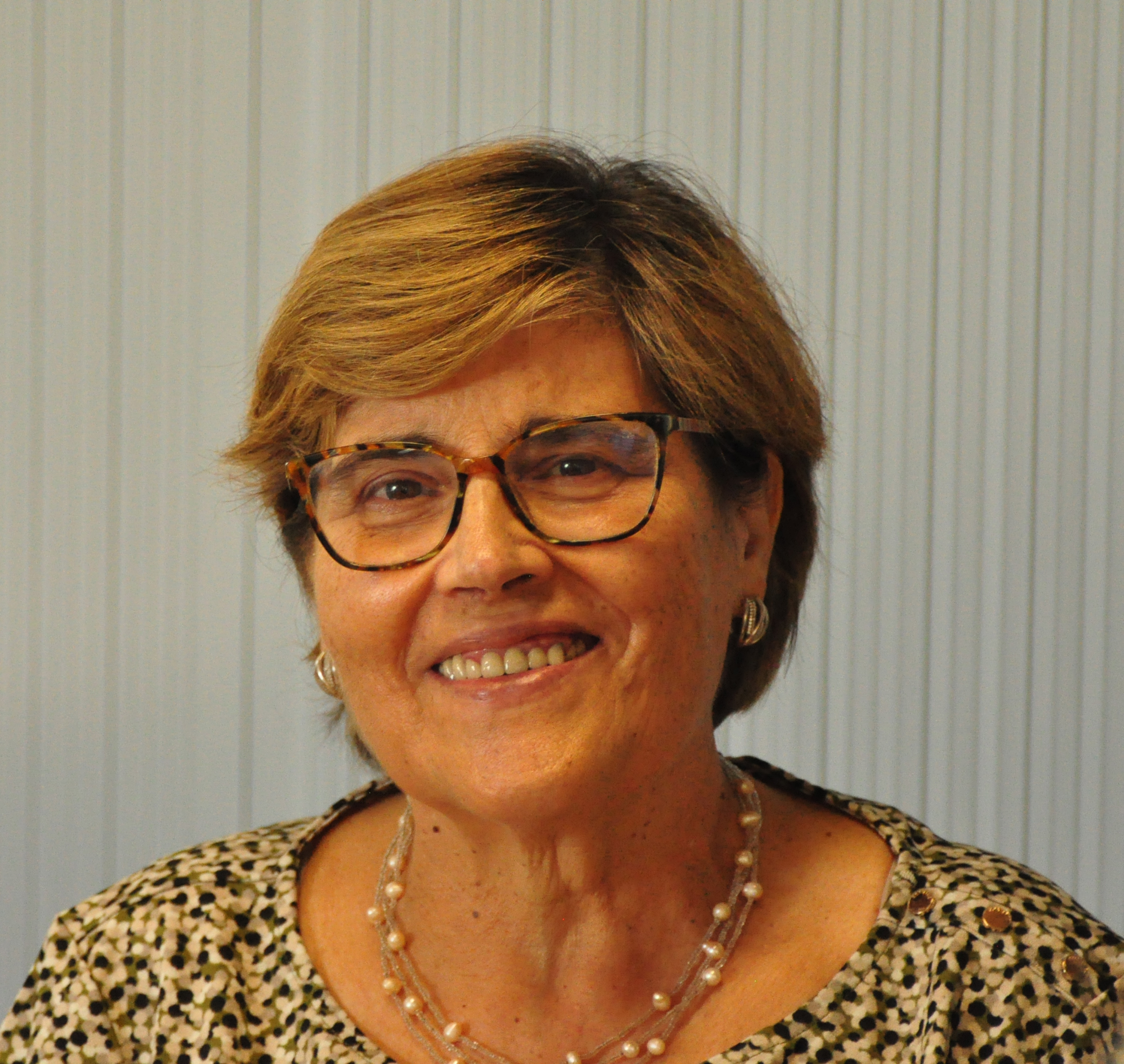
Adélia Sequeira is Full Professor of Mathematics at the IST (Instituto Superior Técnico), University of Lisbon in Portugal. She retired in March 2021. From 2017 - 2021 she was the Director of the Research Center for Computational and Stochastic Mathematics - CEMAT/IST-ULisboa. She is the Scientific Coordinator of the CEMAT’s Research Group: Mathematical Modeling in Biomedicine since 2010.
She received a Doctoral Degree in Numerical Analysis in 1981, at École Polytechnique in Paris, France, a Doctoral degree in Mathematics in 1985, at the Faculty of Sciences of the University of Lisbon and the Habilitation degree in Applied Mathematics and Numerical Analysis from the IST, in January 2001.
In November 2018 she was elected corresponding member of the Lisbon Academy of Sciences, Class of Sciences.
Currently, her research interests are in the area of cardiovascular mathematical modelling and simulations of closely connected problems of clinical relevance associated with vascular diseases: patient-specific cerebral aneurysms progression; biomechanical and biochemical actions in blood vessels, with application to thrombosis and atherosclerosis processes. She is also interested in mathematical and computational fluid dynamics, particularly focused on viscoelastic non-Newtonian fluids and on hemorheology and hemodynamics studies.
Title and abstract of the Talk: Blood Rheology and Multiscale Modeling of Cardiovascular Flows


